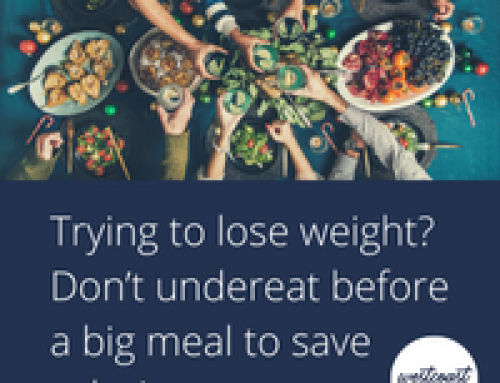Are you hungry an hour or two after a meal? Needing to graze to stay satisfied? What about those pesky cravings that come back day after day, or don’t seem to be satisfied by a few bites of whatever it is that’s on your mind? If this sounds like you, you most likely have some physical drivers of hunger and cravings you need to clean up to make eating well easier (and keep your brain and body from pulling you off track again and again). The good news is these drivers are often manageable with some food and lifestyle adjustments!
1. Sleep
If you’re not getting 6-8 hours of good quality sleep, you will see both an increase in levels of chemical hunger hormones AND an increased drive in comfort cravings as your brain tries to “feel better” without its full rest and repair. Good quality sleep (fall asleep and stay asleep) is so key to how our brain and body works! I find these days BRUTAL for feeling hungry in between meals and super random cravings. My most notable? Marshmallows at 10 am (15 minutes after finishing breakfast) – not my usual favourite food, but man was my brain really focused on it.
The fix:
Long term – spend some time on fixing your sleep hygiene and quality. Electronics off early, meditation or reading before bed, regular bed/wake times, supplements like melatonin and L theanine if needed (and approved by your MD or RD).
Short term – load up on protein at every meal (20-40 g depending on your size), make sure you are well hydrated, and give your brain as many mini breaks to reboot throughout the day as you can manage (1 minute of deep breathing, getting up from your desk to pop your head outside, a few stretches etc). On really bad days I may add an extra protein shake mid morning to really try and tamp them down because I know this can be a problem for me. Being proactive can make loads of difference to how the day turns out as far as food choice.
2. Super Strict or Restrictive Diets
Eating in a way that feels good for you is awesome! But… if you’re feeling deprived, have removed most of your favourite foods, or are too repetitive you’ll be depleting your brain’s willpower reserves (we call this cognitive restriction) and eventually cravings will crank up in an effort to release the pressure of being so careful all the time. Nobody escapes the restriction – overeat cycle. You’re not failing because you can’t stick to something or eat perfectly for more than a few weeks or months. You’re just human!
The fix:
Plan your treats! I encourage at least one a week even on a therapeutic diet, but with some forethought. When would you really enjoy it? (Thursday/Friday nights are a big one for me). What would feel the most satisfying without triggering bingeing/volume eating issues? Make sure you savour every bite of that planned treat without guilt, and you should see your cravings start to settle instead of dogging you night after night.
3. Stress – short term and chronic
Oh, stress. This month all of my clients have been struggling with the weight of the chronic stressors and lack of our usual outlets. How are you feeling?
It has been showing up in new or more intense cravings and increased comfort eating. If these cravings are happening often and affecting your physical health and confidence in how you eat, we need some strategies! Waiting until “life is back to normal” is tempting, but isn’t a great strategy. This year may be especially hard, but stress and difficult times will keep popping up because that’s how life is. Figuring out what your body and brain need to better navigate it (so you don’t end up feeling physically crappy at the end) and practicing those things even when sh*t hasn’t hit the fan is key.
The fix:
I can’t cure your life stress, but I can help you manage your nervous system so it doesn’t take you off track. Taking breaks more often (as above in #3) throughout the day to allow your brain to reboot, prioritizing small acts of self care daily (especially my women!) by doing something that feels good before hitting the stress snacking button, upping your Magnesium rich veggies (dark leafy greens are awesome for this) and seeds (pumpkin seeds are my fave) to help balance your parasympathetic (rest and repair) nervous system, and eliminating what stress is under your control (can you find space in the budget for a housecleaner, ask your spouse for help with the kids, say no to a new project). Focus on small and manageable stress reduction MORE often, instead of hoping that a massage once a month will last you those next 29 days. Our nervous system needs some love to keep from sending you “eat more” messages.
4. Protein At Breakfast
Are you guys tired of me singing the praises of getting enough protein? I hope not, because we’re talking about it now. Getting ENOUGH protein, and getting it regularly throughout the day is essential for just about every health goal out there, but especially key if you struggle with getting super hungry or tired between meals, or if you find your hunger ramps up as the day goes on (leaving you open to pre dinner or evening grazing and bingeing).
The Fix:
Short term – Focus on getting enough protein at breakfast, whenever that first meal is for you. Having 20 + grams of protein at breakfast will lower your hunger hormones for the ENTIRE day. How cool is that? This makes it easier to make better food choices, feel energized and satisfied between meals, and feel in control when in close proximity to the snack shelf.
Long term – Once breakfast is sorted, work on getting enough protein at each and every meal (and reaching your daily goal). 20-45 g per meal works well (more than that won’t be absorbed/utilized well) but may take some adaptation of favourite recipes. Wondering what your daily protein needs are? Most of my clients fall between 1.2 -1.5 g of protein per kilogram of body weight (calculator to convert pounds to kilograms here). This is a great starting place, but if you have specific health or weight goals you’ll want to work with someone to customize that.
5. Fibre
Fibre is the unsexy nutrient that most of us need more of, and also plays a role in hunger and cravings. Fibre helps in two ways. It slows and regulates how fast food leaves the stomach and moves through the digestive tract. This amps up physical sensations of fullness to tell your brain you’re satisfied, and also stabilizes blood sugar so you get a nice steady stream over several hours instead of a big spike and crash (which often leads to cravings and hunger).
The fix:
Non starchy plant foods with every meal. Aim for 2-3 cups of non starchy/lower carb veggies like leafy greens, peppers, broccoli, cauliflower, etc at every meal to start working your way up to 25-38 g (for women and men respectively) per day. If you need a snack, make sure you include a fruit or veggie with it to get that nice steadying effect. Sprinkle some high fibre seeds like hemp hearts or pumpkin seeds on salads, yogurt, or your avocado toast for an extra boost.
Hunger and cravings don’t have to rule your food decisions! Tweaking how and what you eat to optimize those hunger hormones, and gradually ticking away at lifestyle changes for sleep and stress have an enormous long term impact. Try not to get frustrated if you don’t feel like it’s “fixed” right away, it takes time for your body and nervous system to catch up to your ambition to feel awesome.
If you know that cravings, comfort eating, or stress snacking are a root cause of the “off and on” healthy eating cycle for you, I’d love to have you in our Conquer Your Cravings program starting June 7th! We’ll dive deep into topics like these, and give you real life tools and strategies to change how you eat from the inside out. Sound good? Find out all about it and waitlist here, or email me at info@westcoastnutrition and let me know if you have any questions about what to expect.
Need some help getting your meals for the week balanced and prepared? If you’d like to receive our free Meal Planning Getting Started Guide AND get in on our weekly emails about all things nutrition so you can get clarity and confidence on what you’re eating, join us here!







